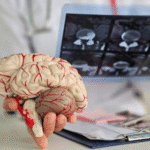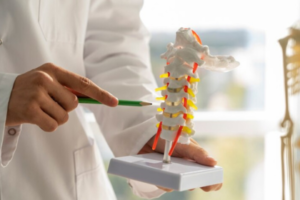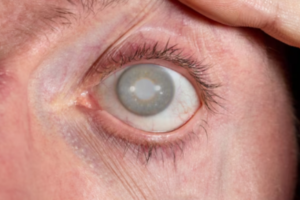Getting dental implants can be a game-changer for anyone missing teeth, but maintaining oral health with these implants is crucial. I’ve seen firsthand how proper care can make all the difference in the longevity and success of dental implants. It’s not just about keeping them clean; it’s about ensuring your entire mouth remains healthy.
In this article, I’ll share practical tips for maintaining oral health with dental implants. From daily hygiene routines to regular dental check-ups, you’ll learn how to keep your implants in top shape and avoid common pitfalls. Let’s dive into the essentials that will help you enjoy a healthy, confident smile for years to come. Similarly, when it comes to managing your finances, implementing strategic financial planning is essential for long-term success and financial health.
Benefits of Dental Implants
Dental implants offer numerous advantages for oral health. Implants restore full chewing power. People can eat any food without worrying about damaging their teeth. This allows for a diverse and healthy diet.
Implants prevent bone loss. When a tooth is missing, the jawbone deteriorates over time. Implants stimulate natural bone growth, maintaining the structure of the face.
These implants provide a permanent solution. Unlike dentures, which need periodic replacement, implants can last a lifetime with proper care. This durability saves both time and money in the long run.
Dental implants improve speech. Missing teeth or ill-fitting dentures can impair pronunciation. Implants provide stable and well-aligned teeth, ensuring clear speech.
Implants enhance overall comfort. They become a part of the mouth, eliminating discomfort associated with removable dentures. This integration feels natural and is hassle-free.
Dental implants support neighboring teeth. This prevents them from shifting into the gap left by a missing tooth. Proper alignment reduces the risk of future dental issues.
These benefits highlight the value of dental implants in maintaining oral health. They offer stable, durable, and functional solutions for missing teeth, contributing to overall well-being.
Daily Oral Hygiene Practices
Daily oral hygiene is crucial for maintaining the health and longevity of dental implants. Consistent care ensures implants remain functional and aesthetically pleasing.
Brushing Techniques
Brushing properly is essential for implant maintenance. Use a soft-bristle toothbrush and non-abrasive toothpaste to avoid damaging implants. Clean all surfaces of the teeth, gums, and implants by brushing for at least two minutes, twice daily. Electric toothbrushes can provide added efficiency in removing plaque. Ensure gentle, circular motions to clean thoroughly without causing irritation.
Flossing Methods
Flossing daily helps prevent plaque buildup around implants. Use dental floss designed specifically for implants, or consider water flossers for easier access. Gently slide the floss between teeth and around the base of the implant. Avoid snapping the floss to prevent injury to the gums. Clean both sides of all interdental spaces to ensure effective removal of food particles and bacteria.
Use of Mouthwash
Mouthwash aids in reducing oral bacteria and maintaining implant health. Choose an antimicrobial or alcohol-free mouthwash to protect implants and surrounding tissues. Rinse for 30 seconds after brushing and flossing. Mouthwash can reach areas that brushing and flossing might miss, providing an added layer of cleanliness.
Professional Dental Care
Maintaining oral health with dental implants needs professional dental care. This care ensures implants remain in optimal condition.
Regular Check-ups
Scheduling regular check-ups keeps dental implants healthy. Dentists inspect for potential issues, such as gum inflammation or bone loss. During these visits, X-rays help detect hidden issues early. Typically, I recommend visiting the dentist every six months unless advised otherwise.
Professional Cleanings
Undergoing professional cleanings complements home care. Dental hygienists use specialized tools to remove plaque and tartar that regular brushing can’t reach. They focus on areas around implants, preventing infections and ensuring gum health. Most experts suggest professional cleanings at least twice a year.
Potential Complications
Dental implants, while highly effective, can face some complications. Addressing these potential issues early ensures the longevity of the implants.
Peri-implantitis
Peri-implantitis is a gum disease affecting dental implants. This condition leads to inflammation around the implant, potentially causing bone loss. Symptoms include redness, swelling, and bleeding gums. To prevent peri-implantitis, maintain rigorous oral hygiene and attend regular dental check-ups. If detected, treatment may involve professional cleaning, antibiotic therapy, or surgical intervention to control the infection and protect the implant.
Mechanical Issues
Mechanical issues can arise with dental implants, potentially impacting their performance. Common problems include screw loosening, fractures, and abutment issues. These issues may cause discomfort or dysfunction in the implant. To mitigate mechanical failures, ensure your dental professional uses high-quality materials and proper placement techniques. Regular dental visits help identify and address any early signs of mechanical stress, ensuring the implant remains secure and functional over time.
Tips for Long-term Success
Maintaining the health and effectiveness of dental implants involves several key practices. Focus on proper oral care and lifestyle choices to promote longevity.
Healthy Diet
Eating nutrient-rich foods supports oral health and strengthens dental implants. Integrate more vegetables, fruits, lean proteins, and dairy into your meals. These foods provide essential vitamins and minerals, such as calcium and vitamin D, which are crucial for bone health. Limit sugary snacks and drinks as they promote plaque formation and decay. For example, opt for water over soda and choose fresh fruits instead of candy.
Avoiding Harmful Habits
Certain habits can damage dental implants. Avoid smoking because it impairs healing and increases the risk of peri-implantitis. Limit alcohol consumption as it can also affect bone health and oral hygiene. Refrain from using teeth as tools to open packages or biting into hard objects like ice or pens. These actions stress and potentially fracture the implants. By steering clear of these harmful behaviors, you’ll safeguard the integrity of your dental implants.














